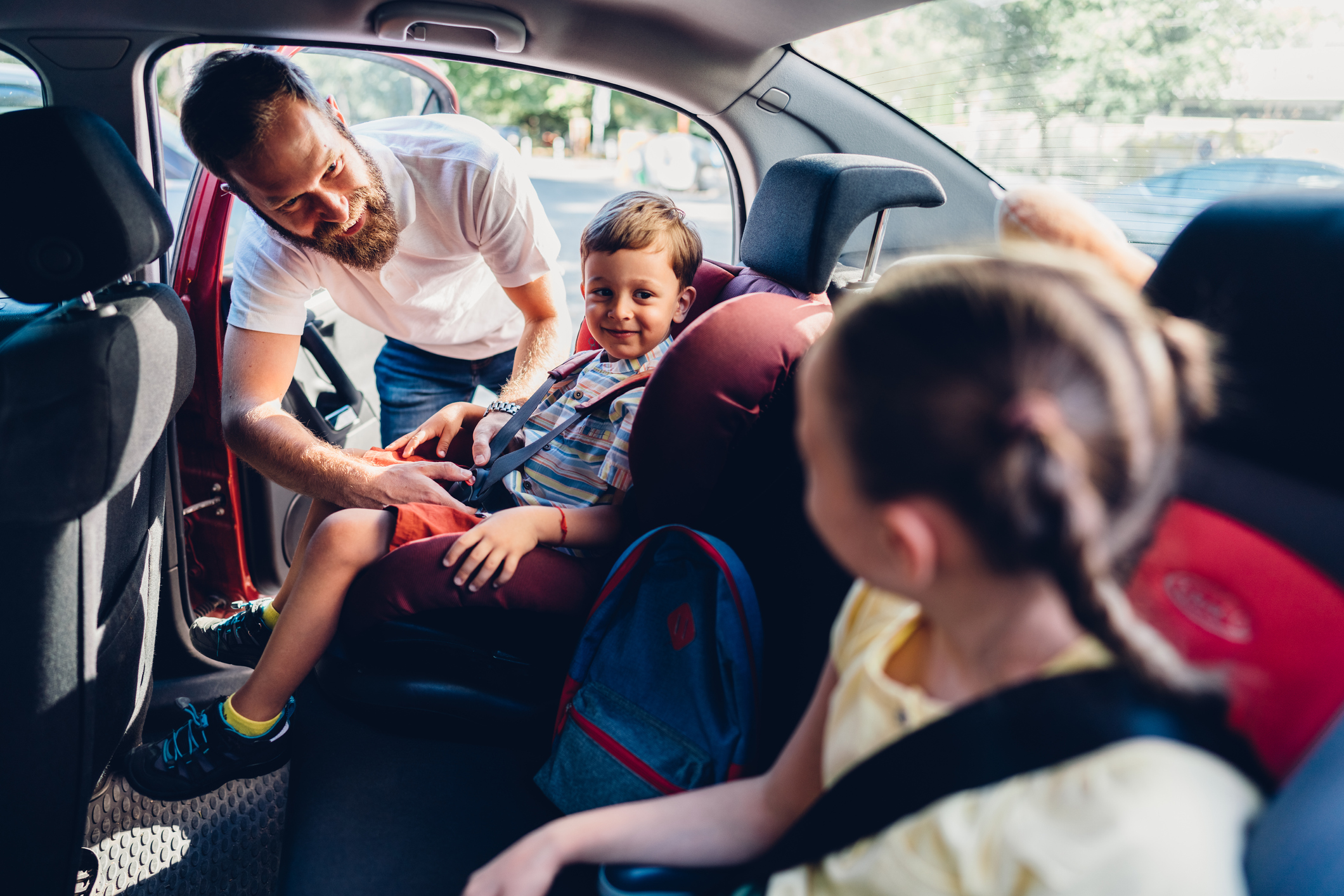Hitting the road for the holidays? Keep these 8 safety tips in mind.

Thanksgiving is nearly here, which means the busy holiday travel season between November and January is upon us.
The weeks of Thanksgiving, Christmas and New Year’s are some of the busiest travel times of the year. With many people on the road, the risk of travel-related accidents also goes up.
Whether you’re hopping on the highway to visit friends in town or driving cross-country to see family, remember to keep safety in mind for each member of your family.
1. Use car seats for babies and toddlers.
Babies under the age of 2 should use rear-facing car seats, while toddlers older than 2 can use forward-facing car seats. Using child safety seats correctly can reduce the risk of death by as much as 71 percent.
If it’s cold outside, cover babies and young children with a thick blanket to keep them warm, after they’re strapped securely into their seat. Bulky winter clothes and coats can keep a car seat harness from doing its job.
2. Use booster seats and the backseat for older kids.
Kids who have outgrown a forward-facing harness seat are not ready for a seat belt or front seat yet. They are safest in a booster seat that enables the adult seat belt to fit properly. Even when children have transitioned from booster seats, they should remain in the back seat until they reach the age of 13.
3. Take your time when traveling with kids.
When you hear the all-too-familiar howl from the back seat that means “I want food” or “change my diaper,” don’t worry about making good time. Instead, get off at the next exit and find a safe area to feed or change your child.
4. Share the road – and the wheel.
Map out your route before you leave, making note of any construction zones or closures that could affect your itinerary. Leave earlier or later to avoid heavy traffic, and let your friends and family know when you plan to arrive.
If you’re driving long distances, divvy up driving responsibilities between drivers in your group. If you start to feel tired, pull over and switch with another driver or stop and rest until you’re able to drive safely.
6. Be prepared for bad weather.
Inclement weather can turn even a short road trip into a white-knuckle ride. Before you leave, check the weather forecast and be aware of possible snowy or icy conditions.
Stay off the road during bad weather, if possible. If you have to drive during inclement weather or hit a hazardous stretch during your trip, remember to slow down, increase the distance between you and the car in front of you, and avoid all distractions to keep your focus on the road.
7. Keep the car stocked.
In case of a travel emergency, make sure your car is stocked with everything you’ll need. This includes a first-aid kit, flashlight, ice scraper, blankets, salt or kitty litter for tire traction, and snacks for everyone in your car.
Make sure cell phones are charged before you depart in case you need to call for help or use your phone’s GPS for directions. And always have a paper map on hand, just in case.
8. More time means less stress.
Giving yourself more than enough time to get to your destination, in case you run into traffic or bad weather. Some stress during the holidays is unavoidable, but a little planning before your trip can help keep the holidays safe and fun.




